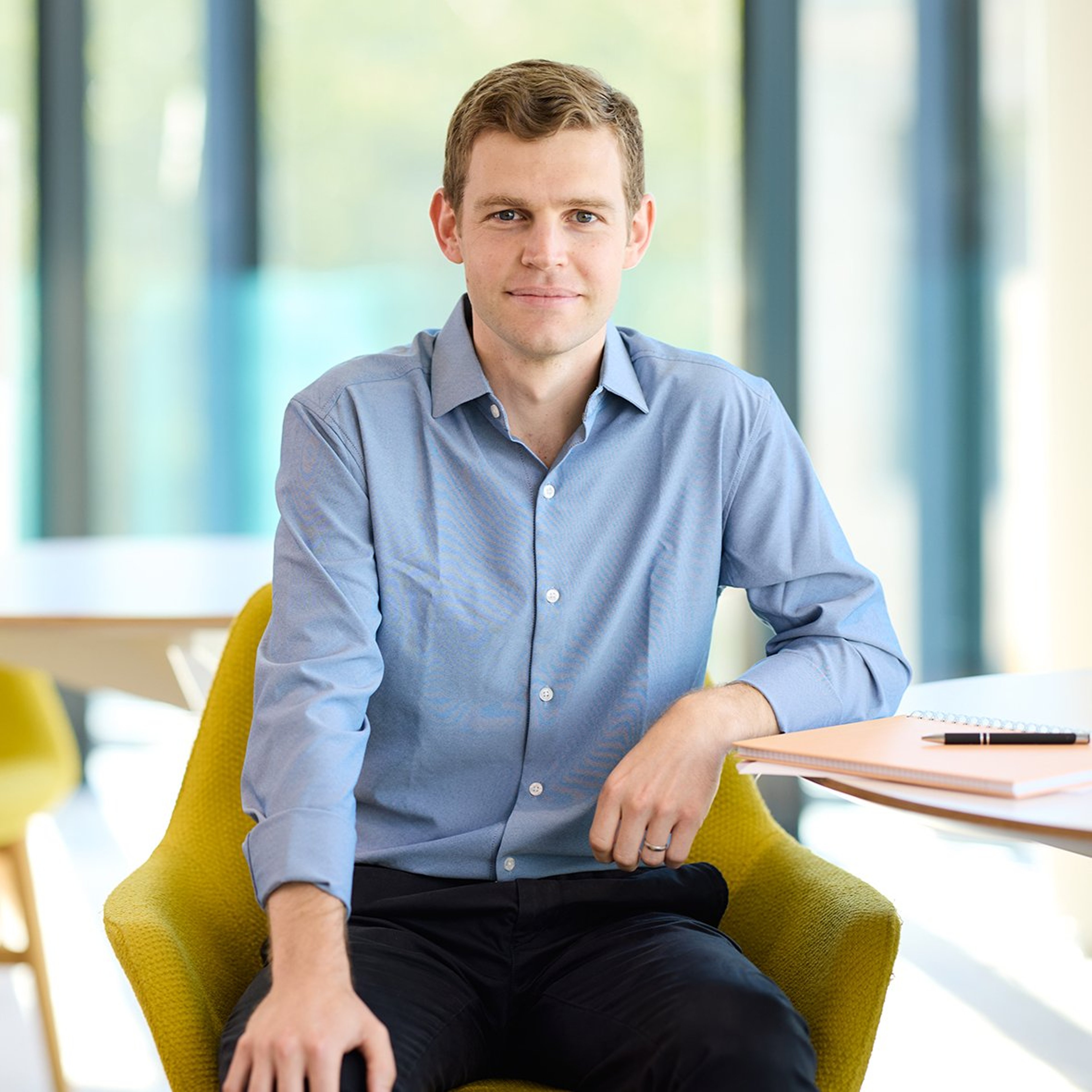Listen to this article
This audio is generated using AI

Kazakhstan's largest city, Almaty, sits at the foothills of the Trans-Ili Alatau mountains
As with any investment, your capital is at risk.
The world’s best super-app comes from Kazakhstan.
By super-app, I mean a digital doorway through which entire populations can access all they need for daily life: banking, paying bills, booking transport, messaging friends, buying groceries and shopping.
These ‘everything apps’ are more common in emerging markets than developed ones. Some of the biggest are WeChat in China, Rappi in Latin America and Kaspi.kz in Kazakhstan.
I contend that Kaspi is the best. Its obsession with pleasing customers has won it unchallenged ubiquity on its home turf, possibly without parallel. It has a history of strong growth, expanding profits and paying out big dividends.
All told, the payments it processes every year equate to about a third of Kazakhstan’s entire GDP. Unsurprisingly, it takes its pick of top talent, locking in its ability to lead.
All this sounds rosy, but investment manager Roderick Snell and I default to scepticism. We’d done a lot of desk research on Kaspi since we first invested in 2020, helped by external research contacts and Baillie Gifford colleagues from that part of the world. Last autumn, we decided to look at Kaspi close-up.
We flew to app HQ in Almaty, Kazakhstan’s commercial heartland. A hub of trade for millennia, the city sits between mountains and semi-desert on the ancient Silk Road connecting east and west.
En route, we reviewed our notes. Kaspi is the largest company in this vast country of 20 million people. Kazakhstan is classed by investors as a ‘frontier market’. Oil and gas producers predominate.
Omnipresent operator
More than 14 million people use Kaspi at least once a month, over half of whom use it four or five times daily. It’s also the country’s biggest retailer and an online shop window for more than 500,000 local merchants.
It offers customers better prices and buy-now-pay-later options. And it’s increasingly the route by which most citizens access public services.
We’ve long been impressed by Kaspi’s 30 per cent annual growth rate and that it generates a dollar of profit for every dollar invested.
Yet the stock is still cheap. A ‘price-earnings ratio’ of only 10 means investors pay a mere $10 for every $1 of net profit.
For comparison: Facebook owner Meta’s ‘p/e’ is 29 and Amazon’s 44.
This doesn’t add up. It suggests that Kaspi is substantially undervalued – always an exciting prospect for growth investors. Also of interest is its potential for further growth in an immature market.
Our hunch was that markets were overcompensating for Kazakhstan’s closeness to Russia. Their shared land border is second in length only to the US and Canada’s. Risk of contagion from the impact of sanctions on the Putin regime following the Ukraine invasion has unfairly cast a pall on Kazakhstan and its companies. But the government keeps Moscow at arm’s length, and, in any case, such geopolitical problems have proved irrelevant to Kaspi’s customers.
That market wariness goes further, however. In emerging markets, ‘connections’ between business and strongmen-led politics can be murky. In Kazakhstan, with all its oil wealth, these links are as gamey as the local delicacies: horsemeat and fermented camel milk.
What’s Almaty like? Different from anywhere I’d been. It’s a mishmash of Russian and Soviet relics, superseded by eccentrically overblown modern showpieces glorifying the post-independence dictator Nursultan Nazarbayev (ruled 1990–2019). Many are grander than Buckingham Palace, seemingly just for the heck of it.

Almaty's Republic Square is furnished with Soviet architecture and a 91-meter-tall column marking the country's independence
I’m not sure I’d come back here for a holiday, though the city’s unique skyline, backed by the snow-capped Zailyisky Alatau mountains, is said to offer good skiing. The horsemeat was OK, a bit like goat. Roddy dared to try the camel milk: “An acquired taste. Like gone-off milk, turned fizzy.”
Our day with Kaspi started with its e-Grocery arm, launched in 2021. We were taken to a giant ‘dark store’ or warehouse, bigger than a supersized supermarket, with aisles full of pickers.
Characteristically of the company, managers told us, this arm runs quasi-independently, without top management wielding a long-handled screwdriver to tinker from afar.
We expected something hi-tech, but this seemed the opposite. Productivity determines the pickers’ pay, and they get the job done using mobile guidance systems and plastic bags rather than robot technology.
The focus is on letting people figure out what works best, rather than top-down imposition of automation. The result is an urban grocery delivery business on a par with the best, with competitive pricing, free same-day delivery and high operating margins.
Meet the boss
It was time for our first face-to-face meeting with Mikheil Lomtadze, Kaspi’s Georgian-born, Harvard Business School-educated co-founder and chief executive.
Over an hour and a half, we probed him about his motivations and ambitions and how they aligned with ours for our shareholders. How had he succeeded so well? How might it continue?
Lomtadze has been in the driving seat since 2007. He’d been sent to work in Almaty on behalf of a Moscow private equity firm that had bought a stake in the privatised corporate lender Bank Caspian. He left to join that bank, renamed it Kaspi.kz and transformed it into one of the world’s largest fintechs.
A great bearded bear of a man, dressed in a hoodie, with no minders, Lomtadze projected deep intelligence without a billionaire’s ego. With charismatic founder-leaders, it’s easy for the persona to overwhelm the substance, but it was the latter that impressed us more.
Steady progress
He and his colleagues radiated patience: a determination to do things sequentially and do them well. Instead of the awards and VIP handshakes you often see on bosses’ walls, the display behind his desk was a timeline of customer-friendly software tweaks shaped into the company logo.
He was wide open to questions about how Kaspi improves its users’ lives. This isn’t a business built on some brilliant or unique idea. It’s just customer-centric in a way that’s easy to claim, hard to do.
Kaspi has international ambitions. It recently took a 65 per cent stake in Turkey’s ecommerce leader Hepsiburada. But Lomtadze told us there was no rush. The aim was to do three or four things, then go on to the next three or four things, rather than have 10 fingers in 10 pies and make a mess.
The people around Lomtadze have been with him since the outset, but, overall, Kaspi is a rare example of a high-growth technology company whose headcount is shrinking. The norm in such companies is to grow staff numbers faster than revenue.
This may be born of necessity. Kazakhstan isn’t California. You can’t hire 10,000 great engineers at the drop of a hat and just plug them in. Maybe that constraint has proved to be an advantage to the firm’s culture.
Our four-day programme also involved a three-hour flight to the capital, Astana, where we met banking regulators, competitors and a few other potentially investable companies. All the time, we refined our sense of how Kazakhs see their national champion.
That was best illustrated by a junior staffer at the banking regulator showing us out after a meeting. “We all love Kaspi,” he confided.
Flying home above the great grass ocean of central Asia, what were we taking away?
Mainly a strengthened conviction that, especially for emerging market investors, perceived risk and actual risk aren’t the same thing. But it takes time at close quarters to try to tell the difference.
Important information
Baillie Gifford & Co and Baillie Gifford & Co Limited are authorised and regulated by the Financial Conduct Authority (FCA). Baillie Gifford & Co Limited is an Authorised Corporate Director of OEICs.
Baillie Gifford Overseas Limited provides investment management and advisory services to non-UK Professional/Institutional clients only. Baillie Gifford Overseas Limited is wholly owned by Baillie Gifford & Co. Baillie Gifford & Co and Baillie Gifford Overseas Limited are authorised and regulated by the FCA in the UK.
Persons resident or domiciled outside the UK should consult with their professional advisers as to whether they require any governmental or other consents in order to enable them to invest, and with their tax advisers for advice relevant to their own particular circumstances.
Financial intermediaries
This communication is suitable for use of financial intermediaries. Financial intermediaries are solely responsible for any further distribution and Baillie Gifford takes no responsibility for the reliance on this document by any other person who did not receive this document directly from Baillie Gifford.
North America
Baillie Gifford International LLC is wholly owned by Baillie Gifford Overseas Limited; it was formed in Delaware in 2005 and is registered with the SEC. It is the legal entity through which Baillie Gifford Overseas Limited provides client service and marketing functions in North America. Baillie Gifford Overseas Limited is registered with the SEC in the United States of America.
The Manager is not resident in Canada, its head office and principal place of business is in Edinburgh, Scotland. Baillie Gifford Overseas Limited is regulated in Canada as a portfolio manager and exempt market dealer with the Ontario Securities Commission (‘OSC’). Its portfolio manager licence is currently passported into Alberta, Quebec, Saskatchewan, Manitoba and Newfoundland & Labrador whereas the exempt market dealer licence is passported across all Canadian provinces and territories. Baillie Gifford International LLC is regulated by the OSC as an exempt market and its licence is passported across all Canadian provinces and territories. Baillie Gifford Investment Management (Europe) Limited (‘BGE’) relies on the International Investment Fund Manager Exemption in the provinces of Ontario and Quebec.




